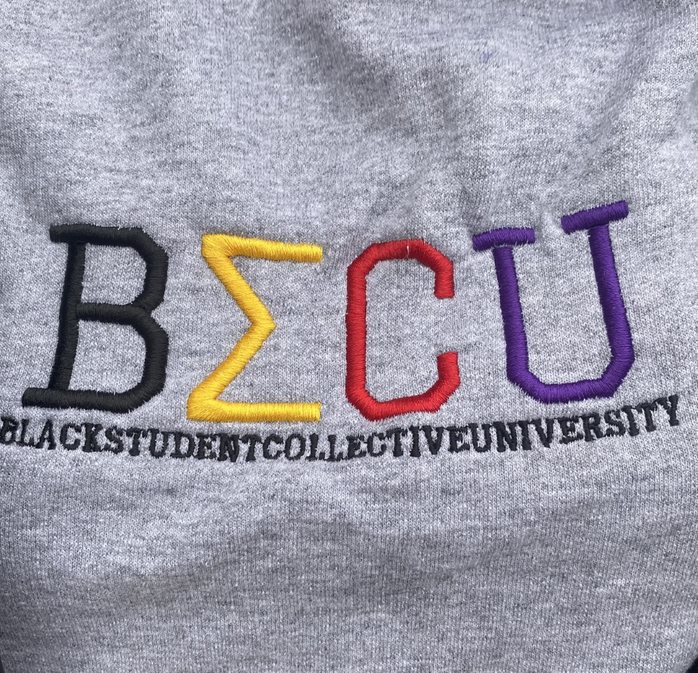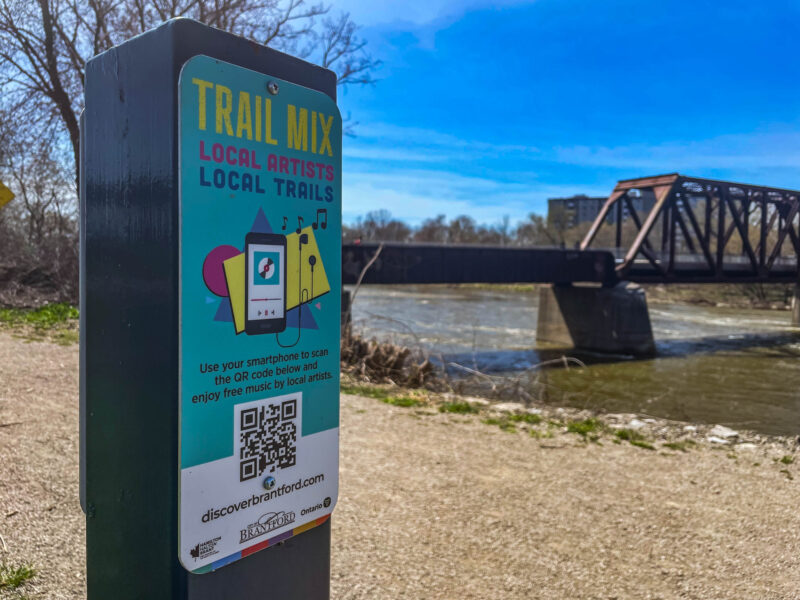Photo Contribution by Serena Anagbe
On Friday, Feb. 10, Brantford-based organization Unite Against Hate held its first speaker series event in Wilfrid Laurier University’s Carnegie building.
The discussion focused on building community connections through learning about Brantford’s Black history and strategizing for a safe and equitable future for Black and other racialized people in the city.
Tracy Cain, a Brantford-raised singer and educational advocate, gave an insightful presentation on Black-Canadian history using the stories of her own ancestors, who came to present-day Ontario as freedom seekers on the Underground Railroad.
She routinely gives similar presentations at local elementary schools.
“When you talk about a family tree,” said Cain, “I’m more like a very dense forest.”
Cain’s third great-grandfather, Andrew Lucas, was a coachman and body servant for Andrew Johnson, who later became the 17th U.S. President.
Lucas eventually ran from Tennessee and crossed into Canada at Black Rock, New York. He moved from Kingston to Brantford in 1836, where he worked as an express horse rider and lived to be an estimated 120 years old, as written on his gravestone in Greenwood Cemetery.
Another ancestor of Cain’s is Joseph Mallot. Born in Alabama, Mallot first moved to the free state of Ohio before moving to Upper Canada in the early 1830s. He lived and died in Queen’s Bush, which was the largest Black settlement of its time in what is now Ontario.
Cain is also the three times great-granddaughter of Allen Cooper, who was born in Virginia at the end of the 18th century. Like Mallot, Cooper moved to Ohio before moving to Upper Canada. He landed in the North Buxton settlement near Chatham-Kent in 1851.
Cain’s parents, Doreen and Winston Johnson, also attended Friday’s event. The Johnsons were the first Black elementary and high school teachers in Brantford. They also dedicated much of their lives to music ministry in the city, a talent that runs in the family.
A highlight of Cain’s presentation was her skilled live rendition of Wade in the Water, a slave song where lyrics include code words enslaved people used to communicate and organize. “Heaven” or “promised land” meant Canada. “Moses” was a way to refer to Harriett Tubman. “River Jordan” referred to the Ohio or Mississippi River.
Cain gave three reasons to know your own history: to rejoice in your ancestors’ contributions, to learn from their successes and mistakes and to be encouraged to make a difference in your community.
“That’s why I go to the schools,” said Cain. “I want them to learn. When they see my heart, they see more.”
The second speaker of the night was Kojo Damptey, the executive director of the Hamilton Centre for Civic Inclusion (HCCI).
Damptey spoke about his work with HCCI and the idea of community stewardship as a framework for making meaningful change.
“What use is a city when some have good things and others don’t have running water?” he asked the room, “When others live in tents?”
Damptey grew up in Ghana and moved to Hamilton in 2001.
“When I moved to Canada, I didn’t see myself as a Black person,” said Damptey. “I saw myself as an African, a Ghanian.”
He says navigating his own identity as an African immigrant in Canada helped him recognize that Black history, though it centralizes North America, is inherently connected to the history of the African diaspora.
One constant among all people of African descent, Damptey said, is the experience of erasure.
“That is why Black lives matter—because our stories are always erased, our stories are stolen.”
One example Damptey gave was in the name Sophia Pooley. Born into slavery in New York, Pooley was sold to Joseph Brant at seven years old and then to Samuel Hatt of Ancaster five years later. Her story is possibly the only known first-person account of slavery in Canada.
Yet, it is the names of the men who enslaved Pooley that are printed on street corners and buildings in both Brantford and Hamilton, not that of the woman whose life represents a pivotal piece of Canadian history.
As Cain said to open her presentation, “It’s not just Black history, it’s Canadian history.”
Amanda Mersereau co-founded Unite Against Hate in 2020 to provide Brantford with anti-racism tools and resources, to highlight local Black history and to create a network among the city’s Black-owned businesses.
Moving forward, Mersereau said she hopes the organization can help to not only dismantle racism in Brantford, but also build positive spaces for BIPOC and marginalized groups in place of hate.
To learn more about Unite Against Hate and upcoming community events, visit their website here or find them on socials @uniteagainsthatebtfd.




